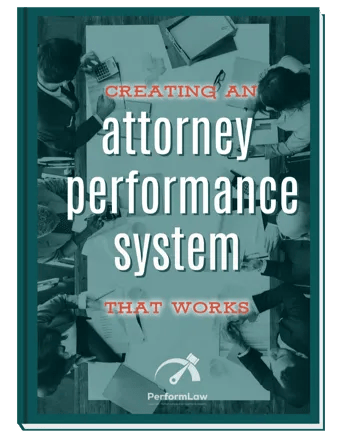To remain competitive, law firms must attract, motivate and retain top performing associates. A well-designed associate compensation system is essential to championing this effort. While no system is perfect, a firm is most effective when its compensation structure is aligned with the law firm goals and values. The system should also be predictable so that there is a clear connection between an associate’s behavior and his or her compensation.
This article will discuss the components of a successful compensation system, including base pay and bonus pay. It will review ways in which your firm can approach these components in developing an associate compensation system.
Base
Base compensation varies by law firm and market. Many firms have a salary scale based mostly on experience. Economic factors are considered, and firm performance often influences base pay. Typically, firms set a base compensation and give law firm associates annual pay increases. While associates on partnership track may have a higher earning ceiling, eventually salaries are capped, and additional income is earned through bonus.
Rate increases are difficult to achieve, and many clients have standard rates based on experience level. As a result, associate profit margins are difficult to maintain. Well-managed firms mitigate this effect through expedited training, which results in improved production and realization.
The two most common base compensation schemes we see include lower base/higher bonus and higher base/lower bonus. Both of these systems are workable, but each comes with its pros and cons. For example, lower base salaries require an aggressive bonus plan requiring firms to reserve cash to meet bonus payouts. Higher base salaries tend to marginalize bonuses and the performance that accompanies an extra pay incentive.
We recommend setting initial base salaries at the market and increasing
base salaries as additions to long-term value occur.
The tools that provide the data to make these assessments include:
Increasing base salary based on the thoughtful consideration of an associate's value to clients and the firm will incent the right factors.
Bonus
Subjective
A completely subjective bonus system is based on the opinions of the firm decision-makers. This can lead to a process susceptible to a weighting based on political strength, likability, and perception. While billable hours and billing data may inform bonus awards, the actual meeting dynamics and current events (good/bad year, good/bad month, cash position, etc.) can play a disproportionate role.
Absent a reliance on objective factors, administering a subjective system should, at a minimum, employ a process of comparing final numbers for essentially equivalent results. A comparison to prior year awards for the same stated performance may also indicate inconsistencies.
Communicating the bonus criteria and ensuring that the recipients (or non-recipients) can connect their performance to their award is essential to incenting the right levels of performance. It is fine to award non-productivity related subjective bonuses (community activity; client satisfaction/feedback; pro bono service award, etc.) so long as there is a clear connection between the action and the compensation. Differing bonus amounts that are not explainable by apparent factors can create morale issues.
We believe a fair compensation system needs to be predictable and transparent. Therefore, data is inevitably needed, which incents a move toward an objective approach.
Objective
Among the objective bonus structures, compensating based on billable hours is the most prevalent. Standard bonus programs range from payment for each hour worked past a threshold to bonuses based on a percentage of salary at stated levels of production. Several other systems exist, but the awards still primarily tie to billable hours.
The key concerns raised with hours-based bonuses include realization and workload differences. Unless there are realization thresholds, associates may aggressively record time. Clients also realize this so may have issues with these types of bonus plans. Some clients have even evolved to using bill auditing services and tight rate controls. Workload differences may also present issues with an hours-based bonus system. Associate hours may be related to less obvious factors such as overstaffing or even training and supervision deficiencies.
The obvious benefit of rewarding based on billable hours is that it compensates for actual work and is predictable and transparent. Associates know the bonus parameters and can calculate their bonus as the year progresses. Popularity does not factor into the award. As with any formula-based systems, final results should be reviewed for any potential gaming of the system.
We favor objectively incenting productivity. Further, we prefer to go beyond the billable hour to also consider the following factors in determining compensation:
- profitability
- originations/ business development,
- training,
- leveraging and
- recruiting.
Our latest eBook outlines the process for creating an effective attorney performance system that prevents poor performance, low morale, and turnover. This system applies to any sized firm wanting to improve attorney performance or hire solid attorney candidates in the near future.
DOWNLOAD IT NOW
.webp?width=124&height=108&name=PerformLaw_Logo_Experts3%20(1).webp)


